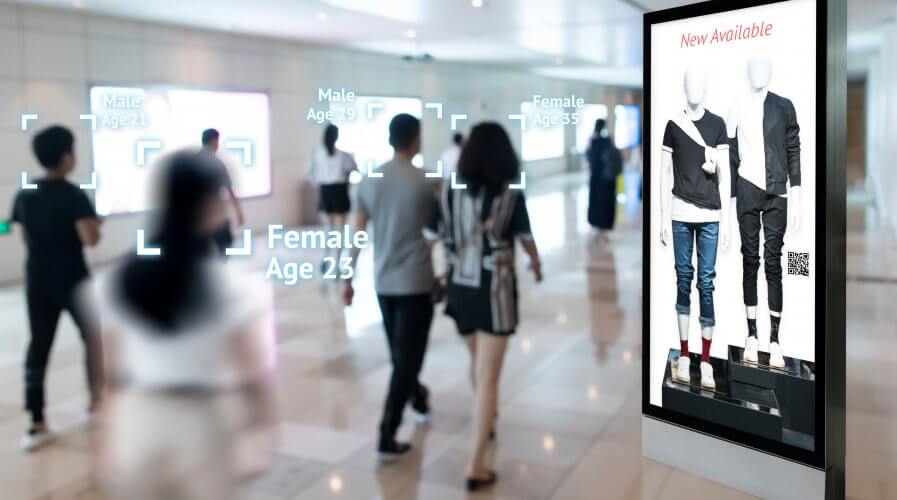
AI is definitely going to disrupt sales and marketing in a major way.
Can your marketing team really benefit from AI?
ARTIFICIAL intelligence or AI is one technology that is advancing rapidly, and enterprises across all sectors are quickly jumping on the bandwagon in an effort to maximize business potential.
Most conversations with regards to the utilization of AI currently centers around the optimization of outputs in heavy industrial settings and the automation of repetitive tasks in the financial sector.
However, more and more businesses functions are waking up to the reality that AI can significantly transform the way they operate.
Let’s look at some common questions when it comes to AI in the sphere of sales and marketing:
# 1 | How does AI impact sales?
AI is going to disrupt sales and marketing in a significant way. Sales reps of the future are expected to deploy AI for forecasting, upselling, cross-selling, generating leads, following up on leads, and so much more.
The technology’s predictive capability will be put to use in sales funnel optimization, whereby prospective customers will be prequalified based on behavior, rather than their input.
By automatically searching through social media and numerous internet forums, AI can determine at which stage of the sales process someone currently is based on what they are saying.
And if a customer is already on the website, AI will track the behavior patterns, such as time spent browsing an item and the pages visited to determine where they are in the funnel.
Vendors can then customize pieces of information which will serve the best interest of the customer at that specific stage in the process.
This real-time predictive data is expected to increase the conversion rate — from informing customers about the product, to closing the sale — at an unprecedented speed.
# 2 | How does AI enhance CX?
Every business strives for impeccable customer service but almost always struggle to meet that goal.
Customers increasingly demand omnichannel experience and vendors resort to using AI-powered technologies to provide customers with smarter solutions across platforms.
When a Malaysian financial provider, Hong Leong Bank embarked on an omnichannel transformation journey, the bank leveraged AI to build capabilities that could be utilized across various channels to deliver superior and consistent customer experiences.
In 2016, the bank launched the country’s very first AI chat advisor and predictive CRM system for its call center. The system could predict the customers’ intention even before they speak.
As a result, the bank has been consistently performing above the 4.0 customer satisfaction (CSAT) score mean target out of a scale of 5.0.
# 3 | How does AI help content creators and marketers?
AI helps marketers grasp the latest trends and patterns, and glean valuable insights from social media, which in turn could be used for content creation, and curation.
Marketers are now privy like never before to the nuances of their audiences’ behaviors, tastes, and preferences which enables to deliver personalized and customized marketing effort.
This revolutionary shift is made possible by monitoring of social media by AI technology.
One estimate suggests up to 2.5 billion people are now within reach by brands, something that was hard to imagine just ten years ago.
Now, brands can carve out a niche for themselves and continue to serve that particular market.
# 4 | Will AI reduce the role of humans in marketing?
The role of the traditional marketer will definitely change as disruptive technologies such as AI become more prevalent.
AI decreases the amount of effort and time taken to tackle repetitive, day to day tasks, but successful marketing also requires the human touch.
At the moment, AI is being used to increase the productivity of the human workforce and to tackle marketing challenges of this new era.
However, in an environment where transformation and development are becoming a new constant, marketers must be able to continuously learn and expand on their skill sets in order to survive.
While AI will continue to be a disruptive force in every sector imaginable, it is essential to keep in mind, that for any business looking to reap the maximum benefits of AI, the focus should always remain on the customers.
READ MORE
- Ethical AI: The renewed importance of safeguarding data and customer privacy in Generative AI applications
- How Japan balances AI-driven opportunities with cybersecurity needs
- Deploying SASE: Benchmarking your approach
- Insurance everywhere all at once: the digital transformation of the APAC insurance industry
- Google parent Alphabet eyes HubSpot: A potential acquisition shaping the future of CRM






